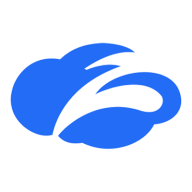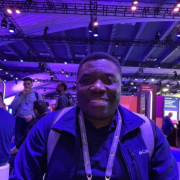


Microsoft Defender for Cloud and Zscaler Zero Trust Exchange Platform compete in cybersecurity with a focus on integration and comprehensive protection. Zscaler is slightly favored for organizations prioritizing internet security due to its superior data protection and web filtering capabilities.
Features: Microsoft Defender for Cloud integrates seamlessly within Microsoft ecosystems, offers detailed security overviews, and provides automated compliance recommendations. Its threat intelligence and compliance management are robust. Zscaler excels with its support for remote workforces, integration capabilities, and user-centric security features. It offers superior data protection, web filtering, and ease of deployment across various environments.
Room for Improvement: Microsoft Defender for Cloud users face challenges with complex policy management and frequent false positives. Desired improvements include enhanced integration, transparency in security scoring, and increased automation. Zscaler users encounter scalability issues, a complex user interface, and occasional latency. Enhancements are needed in notification systems and better support for legacy systems.
Ease of Deployment and Customer Service: Microsoft Defender for Cloud benefits from easy deployment within Azure but receives mixed reviews on customer service regarding response depth. Zscaler offers flexible cloud environment deployment but faces criticism for delayed support resolutions. Both require customer service improvements for better assistance.
Pricing and ROI: Microsoft Defender for Cloud offers cost-effective, usage-based pricing with notable ROI, but its complex structure and additional costs are concerns. Zscaler is often more expensive but justifies the cost with extensive security features and streamlined large-scale deployment for reduced standalone security needs. Microsoft has a complex pricing structure, while Zscaler's baseline cost is high.
The detailed information PingSafe gives about how to fix vulnerabilities reduces the time spent on remediation by about 70 to 80 percent.
After implementing SentinelOne, it takes about five to seven minutes.
Our ability to get in and review our vulnerability stance, whether daily, monthly, weekly, or whatever it might be, has drastically improved over our prior provider.
Defender proactively indexes and analyzes documents, identifying potential threats even when inactive, enhancing preventative security.
Identifying potential vulnerabilities has helped us avoid costly data losses.
Compared to not having Microsoft Defender for Cloud in place, we definitely saw an advantage by not having downtime due to a security threat.
We don't have to purchase many components such as load balancers and proxy servers that were necessary in traditional setups.
When we send an email, they respond quickly and proactively provide solutions.
They took direct responsibility for the system and could solve queries quickly.
Having a reliable team ready and willing to assist with any issues is essential.
Since security is critical, we prefer a quicker response time.
The support team was very responsive to queries.
They understand their product, but much like us, they struggle with the finer details, especially with new features.
Sometimes, support takes time since the solution has some bugs that need fixing.
I would rate it a 10 out of 10 for scalability.
Scalability is no longer a concern because Cloud Native Security is a fully cloud-based resource.
I would rate the scalability of PingSafe 10 out of 10.
As we have reduced our on-premises infrastructure, it is about how we can migrate workloads to the cloud to make it easier, and then having everything fully encompassed and secured within that area makes it much easier for us to scale as needed and grow.
We are using infrastructure as a code, so we do not have any scalability issues with Microsoft Defender for Cloud implementation because our cloud automatically does it.
It has multiple licenses and features, covering infrastructures from a hundred to five hundred virtual machines, without any issues.
SentinelOne Singularity Cloud is incredibly reliable.
We contacted Cloud Native Security, and they addressed it in a day.
The only downtime we had was when switching from V1 to V2 but it was smooth.
Defender's stability has been flawless for us.
Microsoft Defender for Cloud is very stable.
Microsoft sometimes changes settings or configurations without transparency.
If they can merge Kubernetes Security with other modules related to Kubernetes, that would help us to get more modules in the current subscription.
As organizations move to the cloud, a cloud posture management tool that offers complete cloud visibility becomes crucial for maintaining compliance.
I would also like to see Cloud Native Security offer APIs that allow us to directly build dashboards within the platform.
Microsoft, in general, could significantly improve its communication and support.
It would be beneficial to streamline recommendations to avoid unnecessary alerts and to refine the severity of alerts based on specific environments or environmental attributes.
The artificial intelligence features could be expanded to allow the system to autonomously manage security issues without needing intervention from admins.
They might be able to identify if something is missing with Zscaler.
With very little negotiation involved, we just let them know what we could pay and they were willing to meet us at slightly above what we paid with Sophos, which was still very fair for what we were looking at.
There are some tools that are double the cost of Cloud Native Security.
I recall Cloud Native Security charging a slightly higher premium previously.
Security has essentially no cost when compared to the cost of a breach.
Every time we consider expanding usage, we carefully evaluate the necessity due to cost concerns.
We appreciate the licensing approach based on employee count rather than a big enterprise license.
This helps visualize potential attack paths and even suggests attack paths a malicious actor might take.
The infrastructure-as-code feature is helpful for discovering open ports in some of the modules.
This tool has been helpful for us. It allows us to search for vulnerabilities and provides evidence directly on the screen.
The most valuable feature for me is the variety of APIs available.
This feature significantly aids in threat detection and enhances the user experience by streamlining security management.
The most valuable feature is the recommendations provided on how to improve security.
The solution is cloud-based with the latest inspection engines, which I find to be amazing.
We have excellent account management, smooth marketplace engagement, and processing in how my team or organization uses Zscaler Zero Trust Exchange Platform.
| Product | Market Share (%) |
|---|---|
| Microsoft Defender for Cloud | 16.7% |
| AWS GuardDuty | 14.8% |
| Wiz | 13.2% |
| Other | 55.3% |
| Product | Market Share (%) |
|---|---|
| Zscaler Zero Trust Exchange Platform | 10.3% |
| Prisma Access by Palo Alto Networks | 13.5% |
| Netskope | 10.9% |
| Other | 65.3% |


| Company Size | Count |
|---|---|
| Small Business | 48 |
| Midsize Enterprise | 20 |
| Large Enterprise | 54 |
| Company Size | Count |
|---|---|
| Small Business | 27 |
| Midsize Enterprise | 10 |
| Large Enterprise | 49 |
| Company Size | Count |
|---|---|
| Small Business | 16 |
| Midsize Enterprise | 12 |
| Large Enterprise | 41 |
SentinelOne Singularity Cloud Security offers a streamlined approach to cloud security with intuitive operation and strong integration capabilities for heightened threat detection and remediation efficiency.
Singularity Cloud Security stands out for its real-time detection and response, effectively minimizing detection and remediation timelines. Its automated remediation integrates smoothly with third-party tools enhancing operational efficiency. The comprehensive console ensures visibility and support for forensic investigations. Seamless platform integration and robust support for innovation are notable advantages. Areas for development include improved search functionality, affordability, better firewall capabilities for remote users, stable agents, comprehensive reporting, and efficient third-party integrations. Clarity in the interface, responsive support, and real-time alerting need enhancement, with a call for more automation and customization. Better scalability and cost-effective integration without compromising capabilities are desired.
What are SentinelOne Singularity Cloud Security's standout features?SentinelOne Singularity Cloud Security is deployed in industries needing robust cloud security posture management, endpoint protection, and threat hunting. Utilized frequently across AWS and Azure, it assists in monitoring, threat detection, and maintaining compliance in diverse environments while providing real-time alerts and recommendations for proactive threat management.
Microsoft Defender for Cloud is a comprehensive security solution that provides advanced threat protection for cloud workloads. It offers real-time visibility into the security posture of cloud environments, enabling organizations to quickly identify and respond to potential threats. With its advanced machine learning capabilities, Microsoft Defender for Cloud can detect and block sophisticated attacks, including zero-day exploits and fileless malware.
The solution also provides automated remediation capabilities, allowing security teams to quickly and easily respond to security incidents. With Microsoft Defender for Cloud, organizations can ensure the security and compliance of their cloud workloads, while reducing the burden on their security teams.
Zscaler Zero Trust Exchange enhances security with seamless cloud-based connectivity and VPN-less operation, offering integration with multiple identity providers and advanced security features, suitable for remote work environments.
Zscaler Zero Trust Exchange provides secure, adaptive connectivity without traditional VPNs, allowing organizations to replace legacy systems and bolster remote work security. The platform offers cloud-based protection, single sign-on, dynamic URL categorization, and scalable solutions. While advanced security features like DLP and threat protection enhance data protection, users may face issues with speed, connectivity, and some customization options. Integration challenges, latency due to multi-tenant hosting, reporting delays, and licensing costs require consideration. It supports secure internet access and private application security, ensuring traffic control and data compliance.
What are the key features of Zscaler Zero Trust Exchange?
What are the benefits of using Zscaler Zero Trust Exchange?
Zscaler Zero Trust Exchange is deployed across industries to secure remote access and enforce zero trust principles. Organizations in finance, healthcare, and technology sectors utilize it for secure internet access and visibility into cloud applications, enhancing performance and compliance in dynamic environments.
We monitor all Cloud Workload Protection Platforms (CWPP) reviews to prevent fraudulent reviews and keep review quality high. We do not post reviews by company employees or direct competitors. We validate each review for authenticity via cross-reference with LinkedIn, and personal follow-up with the reviewer when necessary.